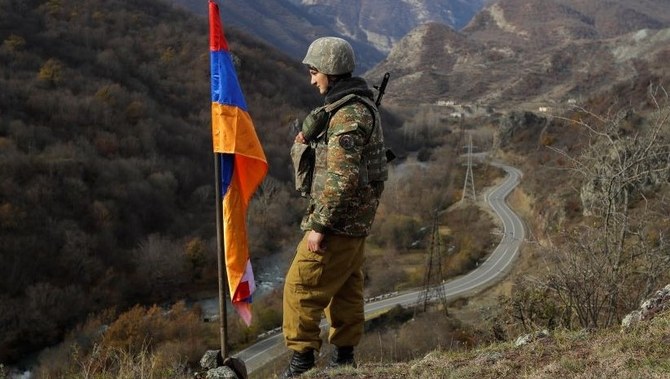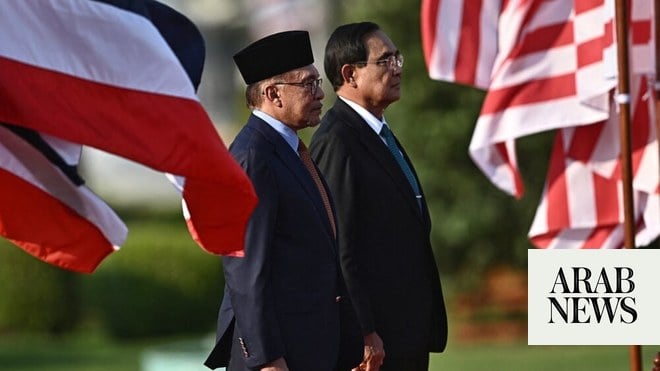
On April 29, 1918 — three years into the bloodiest mass deportation and displacement of its time — Sharif of Makkah Hussein bin Ali issued a decree from the holy city, calling on the non-negotiable Muslim duty to protect Armenians from death and extinction, defying official Ottoman imperial policy.
We now call this most heinous crime against humanity “genocide.” And so, on the 108th Remembrance Day of the Armenian Genocide, it makes both historic and analytical sense to reimagine the South Caucasus with Saudi leadership.
International diplomacy has failed the South Caucasus.
This region is the northern backyard of the Middle East. What happens there not only threatens the stability and potential of our region, but it also teaches us foresight. If the Arab world pays active attention and does not assume a standoffish, unconcerned position on the troubles of the Caucasus, we can strategically prevent long-term geopolitical and socioeconomic dangers for both our regions and people.
What is happening in the South Caucasus? Russian influence is being reformulated with newly inked gas deals to Europe via Azerbaijan. Turkish expansionism is burgeoning, with political guarantees and lucrative construction and mining deals via its long-standing one nation, two states policy with Azerbaijan. Israeli regional trade dominance is being funded by heavy arms deals with Azerbaijan. Iranian defensive strategies are being activated by warmongering territorial grabs into sovereign Armenia by Azerbaijan. And while all this is happening, the four-month-long blockade of Nagorno-Karabakh is starving and triggering the ethnic cleansing of 120,000 indigenous Armenian people in full defiance of a binding interim order by the International Court of Justice, the highest court of international law in the world.
So, what is not happening in the South Caucasus? No credible and thoughtful mediator has stepped up to do what is right: Put humanity first and ensure that “might is right” does not become the law of the land.
The Middle East is being reformulated by Saudi diplomacy in ways no other country has had the courage, clout or foresight to take on.
Lynn Zovighian
The 1918 decree in Makkah was not just a philosophical postulation saying the right thing at the right time; it was a rare moment of leadership at a time when few global powers were stepping up. The Makkah decree was binding and disruptive in conceptualizing that the strategic is ethical and the ethical is strategic.
It is time for Saudi diplomacy to bring peace to the South Caucasus, using its friendship with Azerbaijan and the establishment of a new friendship with Armenia to protect both the South Caucasus and the Middle East through thoughtful and trusted diplomacy.
The Middle East is being reformulated by Saudi diplomacy in ways no other country has had the courage, clout or foresight to take on. Extending this leadership just a bit further north into the South Caucasus would prevent the preventable crime of genocide against the indigenous Armenians of Nagorno-Karabakh and help sow the seeds of peace for a region that deserves stability and prosperity and that needs it for all its people — Azerbaijanis and Armenians alike.
A Saudi-led responsible and human-centered preventative and public diplomacy strategy can come in many empowering forms.
Firstly, Saudi Arabia has a track record of leading very sensitive and high-level prisoner exchanges. Few countries would be able to mediate a prisoner release between Azerbaijan and Armenia the way the Kingdom could. This could bring all Armenian prisoners of war (the official number has not been published by Azerbaijan) back home unequivocally and safely. No peace talks between Azerbaijan and Armenia will be able to meaningfully commence until every prisoner of war is accounted for.
Secondly, Saudi Arabia has long-standing medical and humanitarian credentials in supplying prosthetics and rehabilitating complex cases for patients mutilated by crimes of war and conflict. Today, this special focus mandate is under the leadership and generosity of the King Salman Center for Relief and Humanitarian Aid. Many prisoners of war previously released by Azerbaijan have had one to four limbs amputated prior to their discharge. A measurable indicator of genocide under international law, these Armenian servicemen and civilians have been returned to their families with few physical means to provide a sustainable livelihood for their loved ones, deeply destabilizing families and society. The impact of providing prosthetics and care for mutilated prisoners of war will be immeasurable.
Thirdly, Saudi Arabia has a unique track record of demining border areas and conflict zones in Yemen, led by the Masam Project. With so much contention between Azerbaijan and Armenia on the question of the planting of mines since the First Nagorno-Karabakh War, neutral and trusted demining will set safer grounds for diplomacy for both sides and minimize the risks of civilian injuries.
A new decree to protect the Armenian people in the year 2023, built on diplomacy, data and dignity, would make history by empowering the idea of “never again,” not only for Armenians but for all communities at risk of genocide throughout the world.
And what happens if we leave it to another global power to assume this calling? History speaks for itself: There is no other country that has proven it can step up.
Lynn Zovighian is the co-founder and managing director of The Zovighian Partnership, a family-owned social investment platform that conducts community-centered research, designs and implements humanitarian and socioeconomic interventions. Twitter: @lynnzovighian












